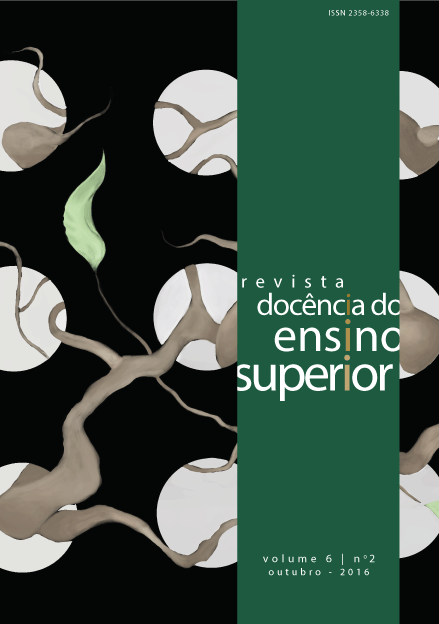Analysis of scientific thinkig development in activities from the dicipline of Applied Physics
DOI:
https://doi.org/10.35699/2237-5864.2016.2122Keywords:
Physics teaching, Laboratory activities, Scientific thinkingAbstract
This paper had the purpose to identify and characterize elements of scientific thinking in applied physics activities from an Oil & Gas industry undergraduate course with students in the third period. To conduct such investigation, ethnographic microanalysis was used, allowing close approach of students’ interaction. Audio and video recordings were made in laboratories where activities were conducted. We also applied a survey questionnaire to assess laboratory practices and the major difficulties students might face. In conclusion, modeling activities allowed three moments, in which the development of scientific thinking elements was perceptible. In those moments, the following elements were identified: evidence, inference, argument, analysis and investigation. Findings demonstrate that students had had no laboratory practice or contact with scientific methodology before starting university. In addition to that, final paper writing was chosen by 46% of the university students as the most difficult activity.
Downloads
Downloads
Published
How to Cite
Issue
Section
License
Authors who publish in this journal retain the copyright and grant the journal the right of first publication, with the work simultaneously licensed under the Creative Commons Attribution License which allows the sharing of work with acknowledgment of authorship and initial publication in this journal.
Authors are authorized to take additional contracts separately, for non-exclusive distribution of the version of the work published in this journal (e.g. publish in institutional repository or as a book chapter), with acknowledgment of authorship and initial publication in this journal.
Open access policy:
Revista Docência do Ensino Superior is an Open Access journal, which means that all content is available free of charge, at no cost to the user or their institution. Users may read, download, copy, distribute, print, search, or link to the full texts of the articles, or use them for any other legal purpose, without seeking prior permission from the publisher or author, provided they respect the license to use the Creative Commons used by the journal. This definition of open access is in line with the Budapest Open Access Initiative (BOAI).
























